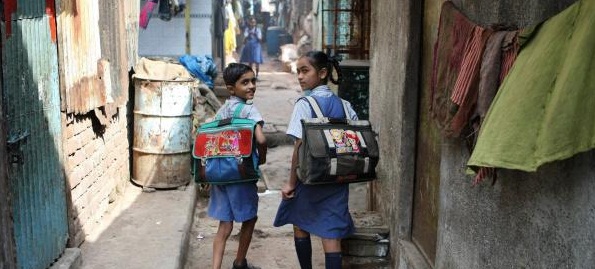
By Olivier Longué, director general at Acción Contra el Hambre | Spain remains a country that invests in solidarity, even in times of economic distress. Its citizens have given ample evidence of this in recent years, both here in Spain as during the crises that took place outside our borders (Horn of Africa or Haiti). The Spanish people do not seem readily willing to sacrifice the possibility of a better world despite the delicate financial situation we have at home.
The Official Development Assistance programme has been greatly affected by the credit crunch. It suffered cuts of 20% statewide in 2011 and of 60% at regional level since 2007. If austerity is, for many, the only way to return to economic growth, it is important to apply cuts sensibly, humanely and without damaging the forces that tomorrow we will need for recovery.
The adjustment policies in cooperation spending is something that should be made in a studied and strategic manner. To think strategically means accepting that international cooperation in a developed country is, on the one hand, part of its international position and on the other, also a driving force for employment, wealth and economic development in its own territory.
Just as we should banish the idea that cooperation is a card that we can use only in good times, it’s time to dismiss the perception that cooperation is only a receiver of public subsidies. Cooperation is an economic sector that has a significant impact within and beyond our borders. Most important is, without doubt, the cause: a better life to millions of children, women and men. But we must not neglect its collateral benefits and added value. For example, we have a comparative advantage over many European countries because of our dense network of highly trained professional actors in the field of water and rural development.
Furthermore, the sector is opening up many ways to work in neighboring Africa, a continent that, despite the bad news that makes the headlines, has a cumulative growth in the last ten years that exceeds that of China itself.
The cooperative sector in Spain is strong because we have been creative and innovative. We have created an economic model poorly understood. For example, we have a unique triangulation between the world of work, university teaching framework and resource generation. It functions as a catalyst. An initial investment, whether private or public (the famous subsidies) creates a leverage effect to add additional resources that complement the initial contribution. The leverage effect is generated by coordinating the resources available for the same purpose (for example, a project in Guatemala), to generate new funding opportunities guaranteed by the initial investment and streamlining resources to have more effective results.
It is estimated that the Spanish NGOs have received €638 million from the Official Development Assistance programme in 2011, but have have generated over €524 million in private funds and €243 million in international funds. It could be much more if we let the sector to fully explore its capabilities.
In Acción Contra el Hambre ACF (Action Against Hunger), technical expertise is among the most appreciated factors by our donors, both public and private. The high standards of our professionals or the existence of a department and a dedicated budget for research and the relationship with universities not only increase the efficiency of our programs but of our campaign against hunger (we have been pioneers in developing nutritional and medical treatments against acute malnutrition, etc.)
Therapeutic Food Ready to Use, early warning systems with satellite images or guidelines for the construction of sustainable water extraction are other examples. Many companies in Spain have found and continue to support the projects of ACF, despite the cuts are justified by the crisis. They value our efficiency but also the professionalism of our workers, who now have skill capabilities of interest to all private economic actors because they have relevant experience, a career in foreign territory and adaptability demonstrated in undertaking new initiatives. Today it is estimated that there are over 21,000 people working in this sector. It could be many more.
International cooperation has carried out another revolution, no less important, in accountability and transparency. Both are, by definition, to be always improved but we have them built into our DNA. Today nobody questions the legitimate social and financial controls which we are subjected to. We are better than any other sector because that is what we wanted. Nobody is subjected to so many audits, mechanisms of national and international certification and studies of all kinds. Only ACF responded to 67 audits in 2010. Money comes, and what it allows us to do you see, because it is measured, it is shown.
Basically, we need to keep supporting international cooperation as a tool of foreign policy to maintain the position Spain has reached in the international arena. That can only be consolidated if we stick to our principles and values.
To cut or cancel public aid is to operate on the fragile line between life and death of many people. It’s missing an ambition for solidarity shared by the Spanish people. It’s accepting that the horror of death from hunger or preventable diseases, conflicts, can be jus with financial data is justified. But besides all this, is back in the position of our country in an increasingly global world. International cooperation is the icing on the cake of prosperity. It is a very profitable investment. It is a tool, yet another, that any country with international ambitions must have in your toolbox to be, forward and be proud of himself.





Be the first to comment on "Spain’s cooperation sector shows a country with international ambitions"